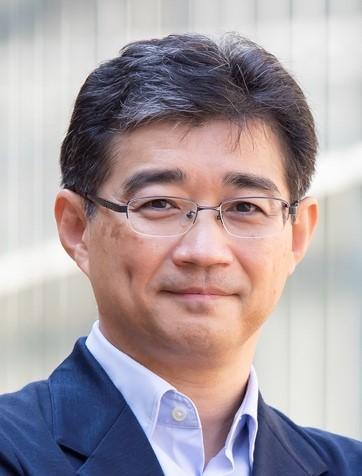Guest Seminar: Dr. Seiya Imoto
Date and Time
Location
ANNU 141

Details
Please join us for a special seminar given by Dr. Seiya Imoto from the The University of Tokyo. The title of his seminar is Unraveling Gut Microbiome Dynamics and Bacteriophage-Based Therapeutic Strategies.
Abstract
The gut microbiome plays a pivotal role in human health and disease. Its dysbiosis has been linked to various conditions, including recurrent Clostridioides difficile infection (rCDI) and acute graft-versus-host disease (aGVHD).
Although fecal microbiota transplantation (FMT) has emerged as an effective treatment for rCDI, the precise mechanisms underlying its success are not fully understood. Although FMT can alter the composition of the gut microbiome, identifying and eliminating specific pathogenic bacteria with antibiotics is difficult and frequently ineffective.
This presentation will explore novel therapeutic strategies that target specific gut bacteria, with a particular focus on the potential of bacteriophages and their derived enzymes. Bacteriophages, which are viruses that infect bacteria, offer a promising way to selectively modulate the gut microbiome.
To investigate the interplay between bacteria and bacteriophages in the gut comprehensively, we developed an experimental protocol and computational pipeline for metagenome analyses. This approach allowed us to create a unique database containing paired bacterial and viral metagenome data from the same fecal samples. This database provides unprecedented insight into host-parasite dynamics.
As a proof of concept, we identified a phage-derived endolysin with specific bactericidal activity against C. difficile. In mouse models, this endolysin effectively reduced C. difficile burden, demonstrating the potential of targeted phage therapy to combat CDI.
Furthermore, we investigated the role of Enterococcus faecalis in the pathogenesis of acute graft-versus-host disease (aGVHD) following allogeneic hematopoietic cell transplantation (allo-HCT). We found that E. faecalis can form biofilms in the gut, which makes it resistant to antibiotic treatment and worsens aGVHD. To address this issue, we identified a phage-derived endolysin that specifically targets and disrupts E. faecalis biofilms. In mouse models, administering this endolysin mitigated E. faecalis–associated aGVHD, highlighting the therapeutic potential of phage-derived enzymes in managing this complication.
In conclusion, these studies underscore the importance of understanding the complex dynamics of the gut microbiome and virome and demonstrate the potential of bacteriophage-based therapies to precisely modulate gut bacteria and treat associated diseases.
References
- Fujimoto K, Hayashi T, Yamamoto M, Sato N, Shimohigoshi M, Miyaoka D, Yokota C, Watanabe M, Hisaki Y, Kamei Y, Yokoyama Y, Yabuno T, Hirose A, Nakamae M, Nakamae H, Uematsu M, Sato S, Yamaguchi K, Furukawa Y, Akeda Y, Hino M, Imoto S*, Uematsu S*. An enterococcal phage-derived enzyme suppresses graft-versus-host disease. Nature. 2024 Aug;632(8023):174-181. doi: 10.1038/s41586-024-07667-8.
- Fujimoto K, Kimura Y, Allegretti JR, Yamamoto M, Zhang Y-Z, Katayama K, Tremmel G, Kawaguchi Y, Shimohigoshi M, Hayashi T, Uematsu M, Yamaguchi K, Furukawa Y, Akiyama Y, Yamaguchi R, Crowe SE, Ernst PB, Miyano S, Kiyono H, *Imoto S, *Uematsu S. Functional restoration of bacteriomes and viromes by fecal microbiota transplantation. Gastroenterology, 2021 May;160(6):2089-2102.e12. doi: 10.1053/j.gastro.2021.02.013.
- Fujimoto K, Kimura Y, Shimohigoshi M, Satoh T, Sato S, Tremmel G, Uematsu M, Kawaguchi Y, Usui Y, Nakano Y, Hayashi T, Kashima K, Yuki Y, Yamaguchi K, Furukawa Y, Kakuta M, Akiyama Y, Yamaguchi R, Crowe SE, Ernst PB, Miyano S, Kiyono H, *Imoto S, *Uematsu S. Metagenome data on intestinal phage–bacteria associations aids the development of phage therapy against pathobionts, Cell Host & Microbe, 2020 Sep 9;28(3):380-389.e9. doi: 10.1016/j.chom.2020.06.005
Speaker Biography
Dr. Seiya Imoto received his Ph.D. in Statistical Science from Kyushu University in 2001, after completing his undergraduate studies in Mathematics in 1996. He began his academic career as a JSPS Research Fellow in 1999, and subsequently joined the Human Genome Center at the Institute of Medical Science, the University of Tokyo, as a postdoctoral fellow and later as an assistant professor in 2001. In 2015, he was appointed Professor at the Institute of Medical Science, the University of Tokyo. Since 2016, he has also served as an advisor on medical statistics to the Ministry of Health, Labour and Welfare (MHLW). In 2020, he assumed the role of Director of the Human Genome Center. His research focuses on the computational analysis of large-scale genomic data from humans and commensal microbes, with the aim of pioneering innovations in genomic medicine.